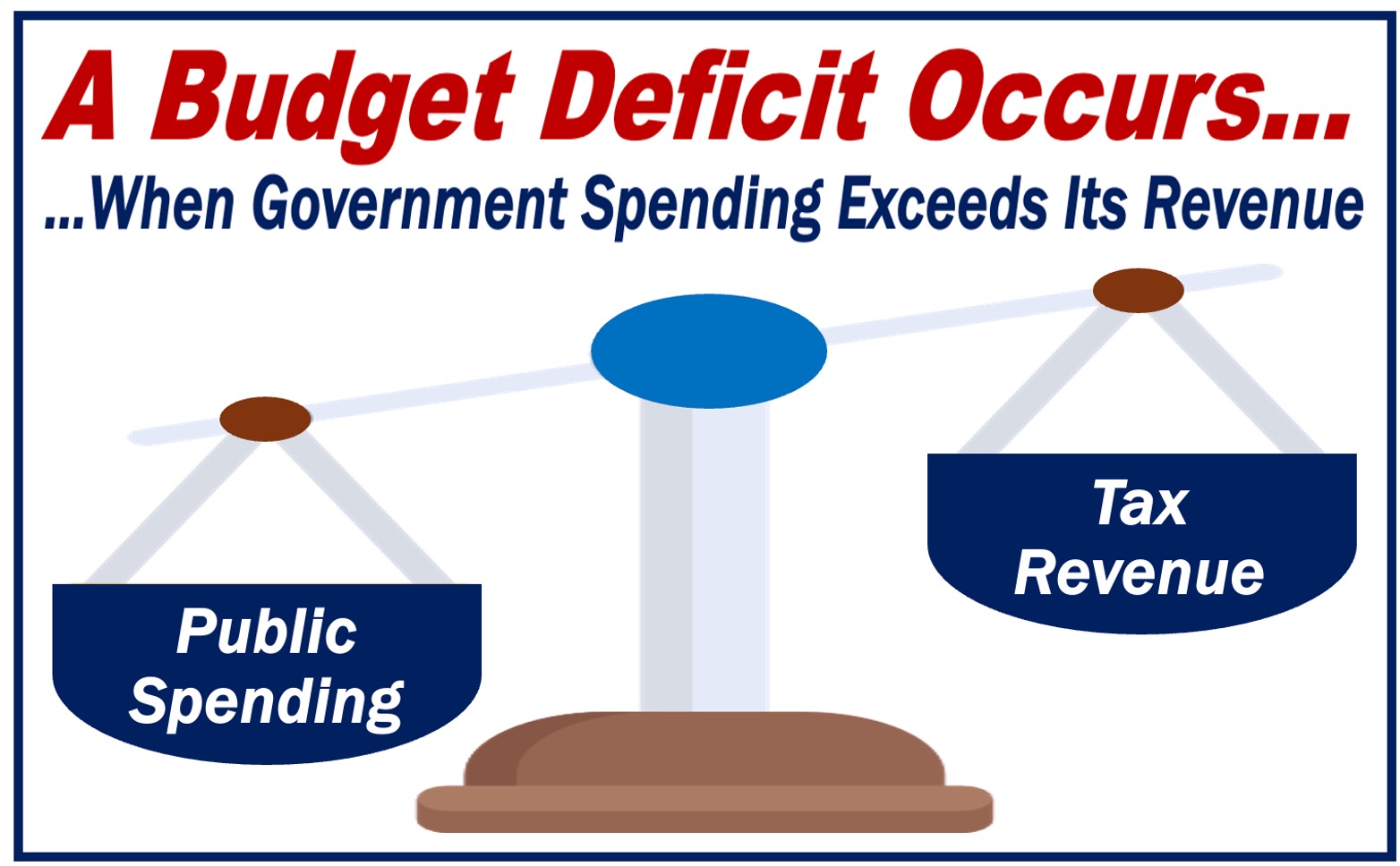A Deficit is an excess of expenditure over income, or liabilities over assets, in a given period. If I spent $100 more than I earned last month, I can say that I had a $100 deficit last month.
We use the term ‘deficit’ when discussing finances in our personal lives, as well as in business or national economic contexts.
The opposite of a deficit is a surplus. A surplus is an excess. For example, if I spent $100 less than I earned last month, I can say that I had a $100 surplus last month.
The Cambridge Dictionary has the following definition of the word “deficit,” plus an example sentence showing the term in context:
“The total amount by which money spent is more than money received, or the state of having spent more money than has been received. Example Sentence: ‘A third of schools in the county say they are in deficit.'”
When used in competitive sports, the term refers to the amount by which a player or team is behind in a game. For example, in tennis, I could say, “Roger Federer overcame a two-set deficit after three hours, and won the match.”
From this point forward, this article will concentrate on the term ‘deficit’ in the contexts of business, finance, trade, or economics.
Four Scenarios Where We Use “Deficit”
-
Everyday Life
If you are running a personal deficit – spending more each month than you are earning – you are probably dipping into your savings. You could also be relying on your credit cards or have taken out a personal loan.
-
The World of Business
A company has a deficit if its costs are greater than its revenue. In other words, the value of its sales is less than its total costs, which usually include rent, wages, purchasing supplies, utilities, buying new vehicles and maintaining them, etc.
A business in this situation may need to borrow money or find ways to reduce expenses if it wants to survive.
-
The Public Sector
A budget deficit occurs when the government spends more than it earns. Government income comes from taxes that people, businesses, and other entities pay. It spends money on roads, schools, defense, healthcare, public safety, social services, research and development, environmental protection, and public transportation.

To bridge this gap, governments often borrow by selling bonds. When the government spends less than it earns, there is a budget surplus.
-
International Trade
International trade refers to exports and imports. When a country exports, money comes in – it earns money. When it imports, money leaves, it spends money.

If imports are greater than exports, there is a trade deficit. The opposite is a trade surplus.
Deficits are sometimes necessary
Deficits, at the personal, corporate, or national levels, are not usually sustainable in the long run. Running up debt is expensive because the borrower has to pay interest, which eats away at future resources.
During a severe economic downturn – a recession or depression – governments may run a deficit intentionally. They use the borrowed money to stimulate spending or invest in major projects.
However, large, continuous deficits may signal instability. If your country’s budget deficit has been growing over the past decade, for example, it will probably find it harder and costlier to borrow money.
Final Thoughts
A deficit is a shortfall. It is the opposite of a surplus. If you run a deficit, it means that you do not have enough money to cover your costs.
Understanding how deficits work, what causes them, their consequences, and how to rein in spending, is important, because they affect our financial decisions and well-being in various ways.
